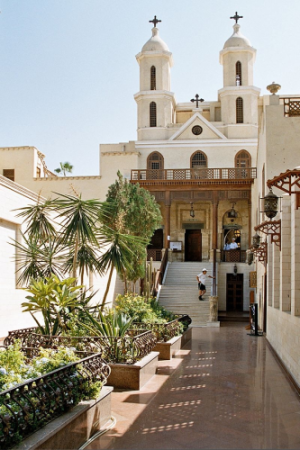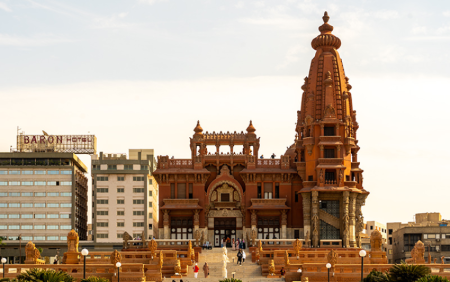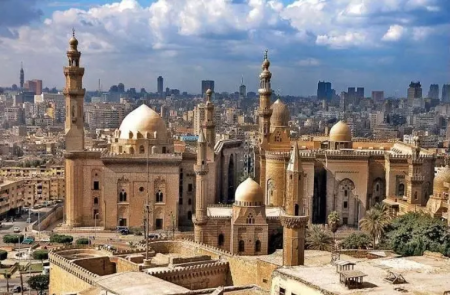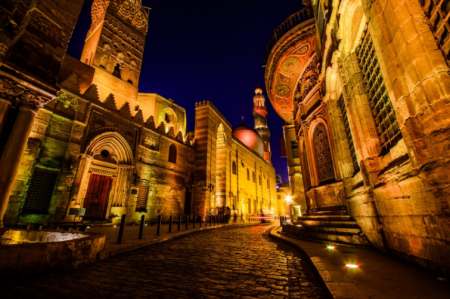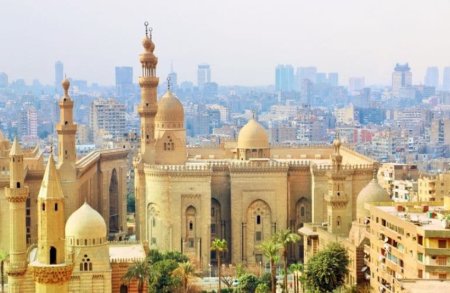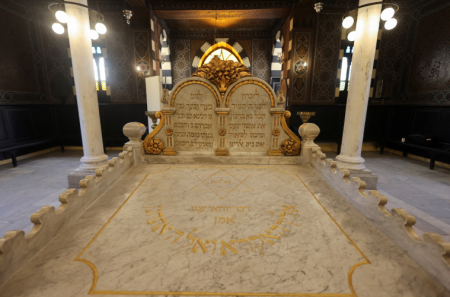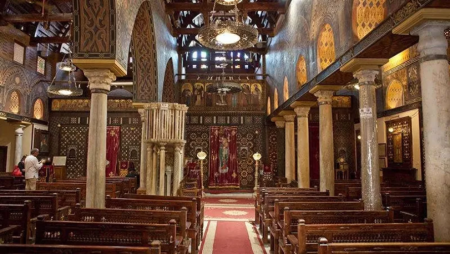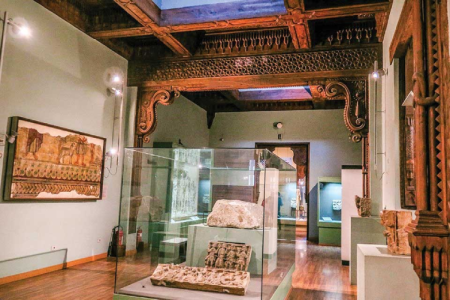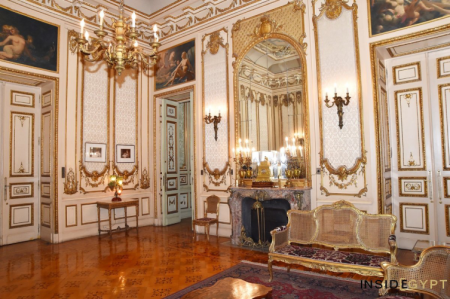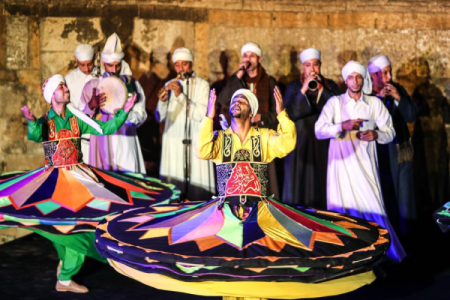Al Azhar Mosque
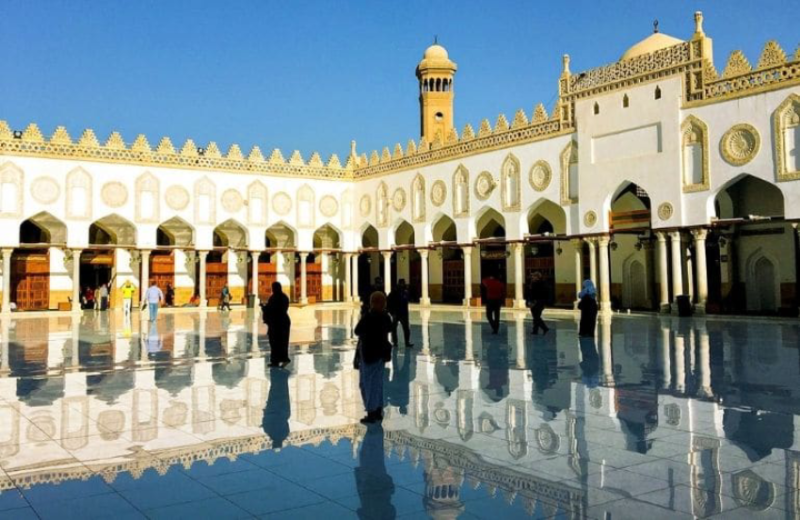
Al Azhar Mosque: The Timeless Beacon of Islamic Scholarship and Architecture in Cairo
Al Azhar Mosque stands as one of Egypt’s most significant Islamic landmarks and a cornerstone of Cairo’s spiritual and intellectual identity. Founded over a millennium ago, this majestic mosque is more than just a place of worship—it’s the cradle of Islamic learning, a symbol of religious endurance, and the heart of scholarly discourse across the Muslim world. Nestled in the vibrant core of Cairo city, Al Azhar has evolved from a Fatimid-era mosque into one of the world’s oldest continuously operating universities. Its towering minarets, intricate stucco work, and marble courtyards whisper centuries of devotion, reform, and enlightenment. For travelers exploring Egypt’s rich Islamic architecture, the mosque offers an unmatched glimpse into history, artistry, and faith intertwined.
Every stone and arch of Al Azhar narrates a tale of intellectual evolution and cultural resilience. The mosque has witnessed dynastic changes, colonial incursions, and modern revolutions, yet its influence remains steadfast. As the epicenter of Islamic scholarship, Al Azhar University shaped global thought, producing theologians, scientists, and reformers whose ideas crossed continents. Visiting this mosque means walking through eleven centuries of Islamic civilization, where devotion meets discovery. Whether you’re touring the bustling Khan al-Khalili bazaar nearby or embarking on Cairo Day Tours, Al Azhar Mosque promises an experience steeped in history, spirituality, and architectural splendor.
The Founding of Al Azhar Mosque: A Historical Masterpiece of the Fatimid Caliphate
Established in 970 AD by the Fatimid Caliph Al-Mu‘izz li-Din Allah, Al Azhar Mosque was initially conceived as the centerpiece of the new Fatimid capital, Al-Qahira (Cairo). The Fatimids, a Shia dynasty, envisioned it as both a place of worship and a platform for spreading their teachings. However, with time, Al Azhar transcended sectarian lines to become a universal institution for Islamic learning. The mosque’s early architecture reflected the grandeur of Fatimid aspirations—elegant arches, intricately carved wooden ceilings, and a courtyard that echoed with scholarly debates.
During the Ayyubid and Mamluk periods, the mosque underwent major renovations and expansions. It became a Sunni stronghold under Salah ad-Din and his successors, marking a pivotal shift in its theological orientation. Centuries later, under the Ottoman Empire, Al Azhar grew into a powerhouse of Islamic jurisprudence and education. Its curriculum expanded beyond religion to include philosophy, astronomy, logic, and linguistics, cementing its reputation as the Islamic world’s intellectual nucleus. Even modern scholars regard Al Azhar as a living testament to Egypt’s enduring cultural and religious leadership.
Architectural Brilliance of Al Azhar Mosque: A Living Legacy of Art and Faith
The architectural beauty of Al Azhar Mosque is awe-inspiring. The structure harmoniously blends Fatimid, Mamluk, and Ottoman styles, each era adding its own artistic flair. The mosque features five minarets that dominate Cairo’s skyline—each distinct in design yet unified in elegance. The central courtyard, flanked by marble columns and arcaded porticoes, exudes serenity despite the bustle of the surrounding city. The mihrab and minbar, adorned with exquisite arabesques and calligraphy, reflect meticulous craftsmanship that has survived earthquakes, invasions, and restorations.
One of the most remarkable features is the gateway known as Bab al-Muzayinīn, or “Gate of the Barbers,” where students once had their heads shaved before entering classes. The mosaics, marble floors, and wooden mashrabiyas breathe life into Islamic artistry. Step inside the prayer hall, and you’ll find yourself enveloped in tranquility—a sanctuary untouched by time. The mosque’s design continues to inspire architects worldwide, much like the legendary Sultan Hassan Mosque and the grand Alabaster Mosque.
Al Azhar University: The Heartbeat of Islamic Education
Emerging from within the mosque’s walls, Al Azhar University remains a beacon of Islamic knowledge. For over a thousand years, it has nurtured scholars who went on to shape the world’s understanding of Islam and civilization. The university’s curriculum traditionally focused on Quranic studies, Hadith, Fiqh (Islamic jurisprudence), and Arabic language. However, in modern times, it has embraced scientific disciplines, social sciences, and even medical studies. This balance between faith and reason makes Al Azhar a unique educational model.
Students from across Africa, Asia, and Europe flock to Cairo to study at Al Azhar, their minds shaped by centuries-old traditions of academic rigor and open dialogue. It’s not unusual to find a lively debate on theology echoing through the same halls that once taught luminaries like Imam Al-Suyuti and Al-Ghazali. The institution also plays a vital role in contemporary Islamic thought, advocating moderation and interfaith understanding. For those planning comprehensive Egypt Travel Packages, a stop at Al Azhar University offers an enriching cultural encounter beyond the usual tourist trail.
The Cultural and Religious Influence of Al Azhar Mosque Across Centuries
Al Azhar has long stood as a moral and spiritual compass for Muslims worldwide. Its scholars have historically guided rulers, resolved theological disputes, and issued authoritative fatwas. The institution’s influence extends beyond Egypt, shaping religious education across Africa, Southeast Asia, and the Middle East. Through its global outreach, Al Azhar promotes tolerance, peace, and intellectual curiosity—a message increasingly relevant in today’s polarized world.
During Egypt’s modern era, Al Azhar played a decisive role in national reforms and independence movements. Its clergy and graduates were at the forefront of social transformation, bridging tradition and modernity. The mosque’s sermons continue to draw massive congregations, reinforcing its role as the pulse of Islamic Cairo. Tourists exploring nearby landmarks like El Moez Street or the serene Al Azhar Park often pause here to marvel at the harmony between faith, learning, and architecture.
Modern Restorations and Preservation Efforts at Al Azhar Mosque
Despite its ancient roots, Al Azhar Mosque continues to evolve. Recent restoration projects, executed with precision and respect for its heritage, have rejuvenated its beauty. Modern lighting, improved ventilation, and structural reinforcement ensure that future generations can admire this jewel of Islamic architecture. UNESCO and Egyptian authorities have worked hand in hand to preserve its authenticity while adapting it for modern worship and education.
Preservation efforts also extend to digital archives, making Al Azhar’s rare manuscripts accessible to researchers worldwide. This blend of tradition and technology highlights Egypt’s commitment to safeguarding its cultural identity. As visitors step into its serene courtyard, they witness not only the echoes of the past but also the promise of a future rooted in knowledge and unity.
Exploring Al Azhar Mosque: What to Expect During Your Visit
Visiting Al Azhar Mosque is an experience that transcends sightseeing. As you step inside, remove your shoes, and pause in the courtyard, you’ll feel an almost tangible connection with centuries of devotion. The mosque remains an active place of worship, hosting thousands of worshippers daily. Dress modestly, maintain respect for prayer times, and engage with local guides to fully appreciate its layered history. Combine your visit with a stroll through Khan al-Khalili Cairo, where the aroma of spices and the sparkle of brass lamps perfectly complement your spiritual journey.
Photography enthusiasts will find endless inspiration in the interplay of light and shadow beneath Al Azhar’s arcades. The call to prayer, resonating through ancient minarets, adds a hauntingly beautiful soundtrack to the experience. Many travelers add this site to curated Egypt Luxury Tours and Egypt Nile Cruises, blending spirituality with leisure.
FAQs about Al Azhar Mosque
What is the historical significance of Al Azhar Mosque?
Al Azhar Mosque is historically significant as both a spiritual sanctuary and a global educational hub. Founded during the Fatimid era, it evolved into one of the world’s leading centers of Islamic learning. Its university still influences theological and cultural discourse across continents, symbolizing Egypt’s enduring intellectual legacy.
Can non-Muslims visit Al Azhar Mosque?
Yes, non-Muslims are welcome to visit Al Azhar Mosque outside prayer times, provided they dress modestly and respect local customs. Guided tours are often available, offering rich insights into its art, history, and religious importance.
Where is Al Azhar Mosque located?
Al Azhar Mosque is located in the heart of Islamic Cairo, near the historic marketplace of Khan al-Khalili and numerous other architectural treasures. Its central position makes it easily accessible for visitors exploring the cultural and religious highlights of Egypt’s capital.
What are the best times to visit Al Azhar Mosque?
The best time to visit is early in the morning or late afternoon when the lighting accentuates its intricate details and the crowds are smaller. Avoid the midday prayer rush to experience the mosque’s serene ambiance. Pair your visit with a sunset view from the nearby Al Azhar Park for a breathtaking panorama of Cairo.
Why is Al Azhar University so influential?
Al Azhar University’s influence stems from its millennium-long tradition of blending religious and secular education. It has produced generations of scholars and leaders who have shaped Islamic jurisprudence, philosophy, and cultural identity. The institution remains a guiding force for moderate, authentic Islamic thought worldwide.




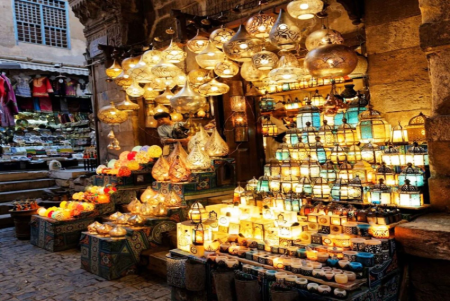
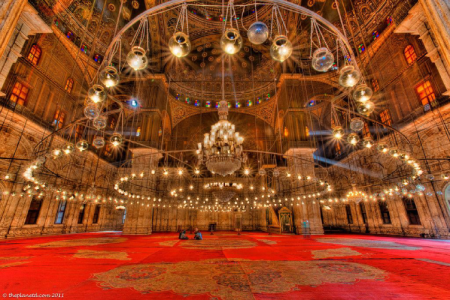
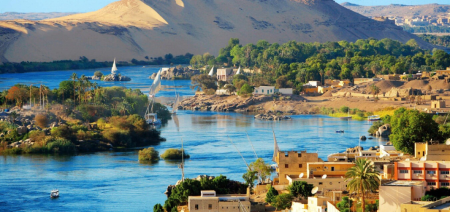

.png)


